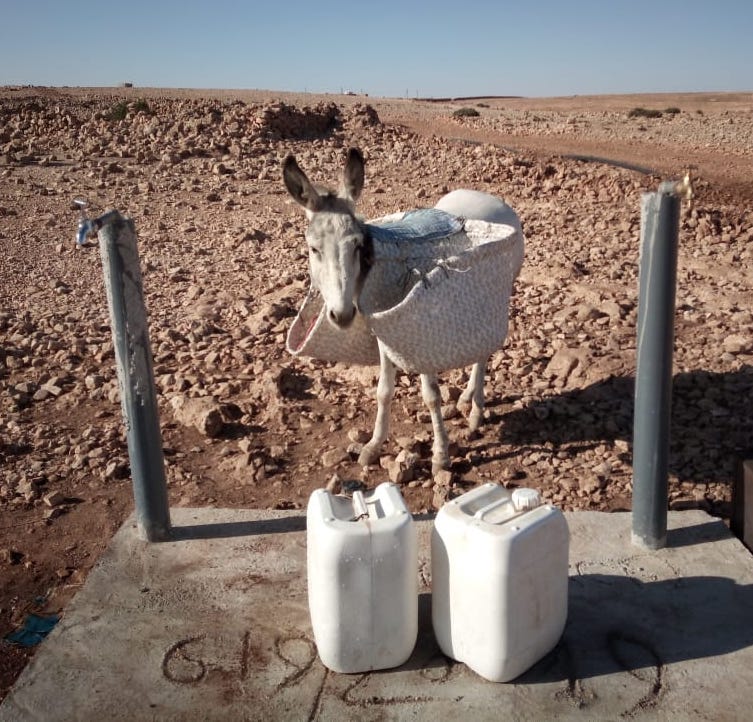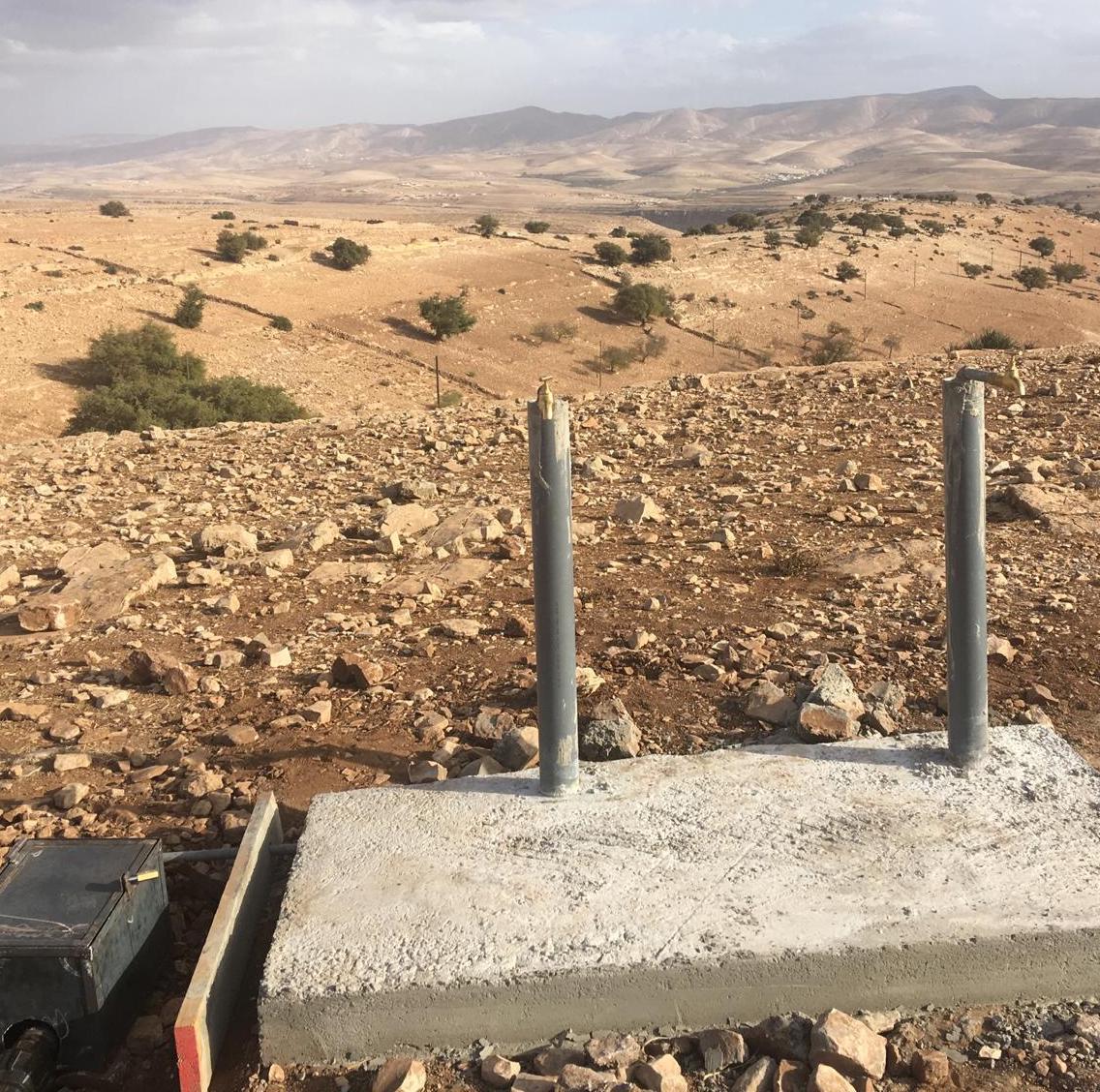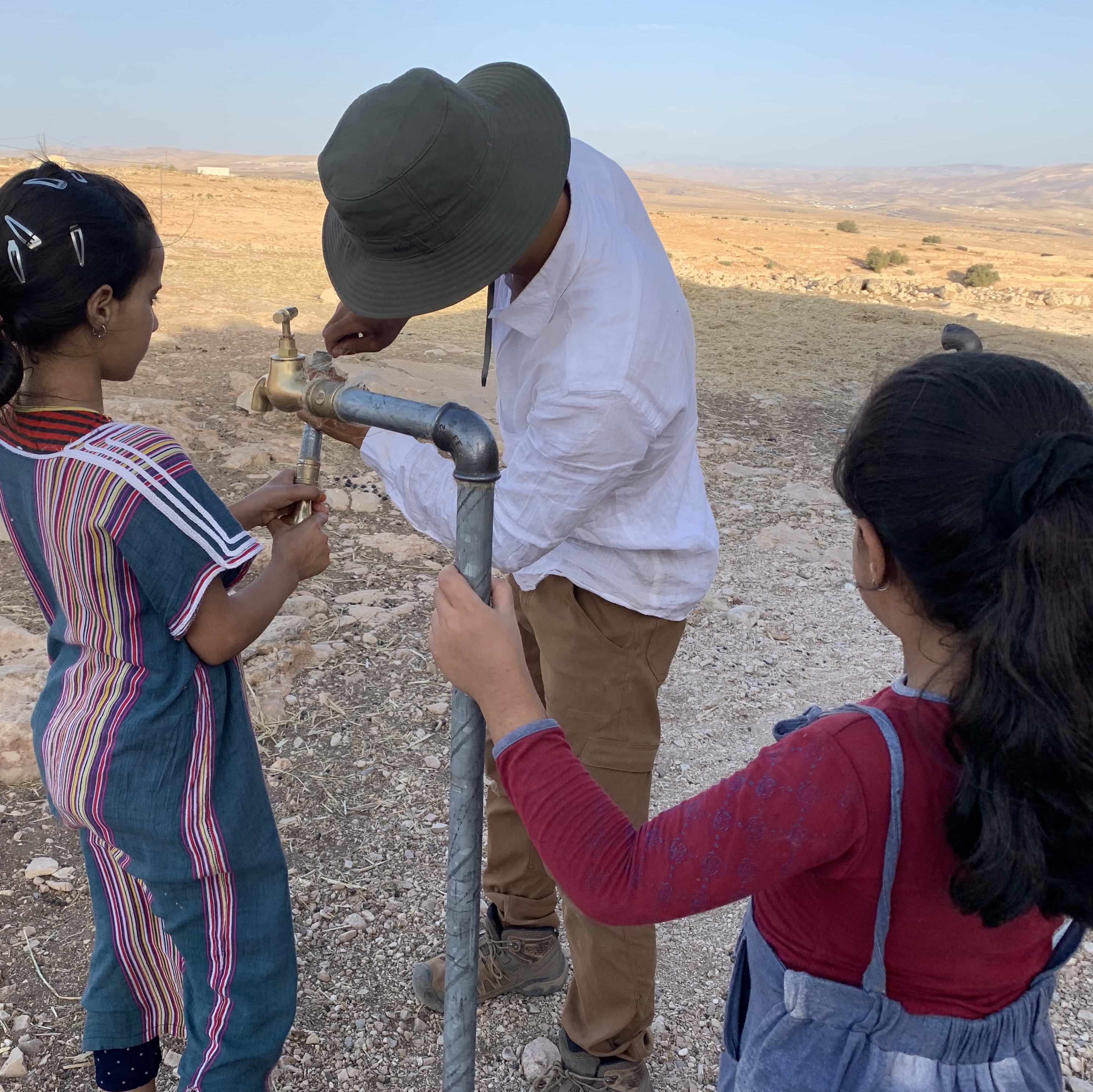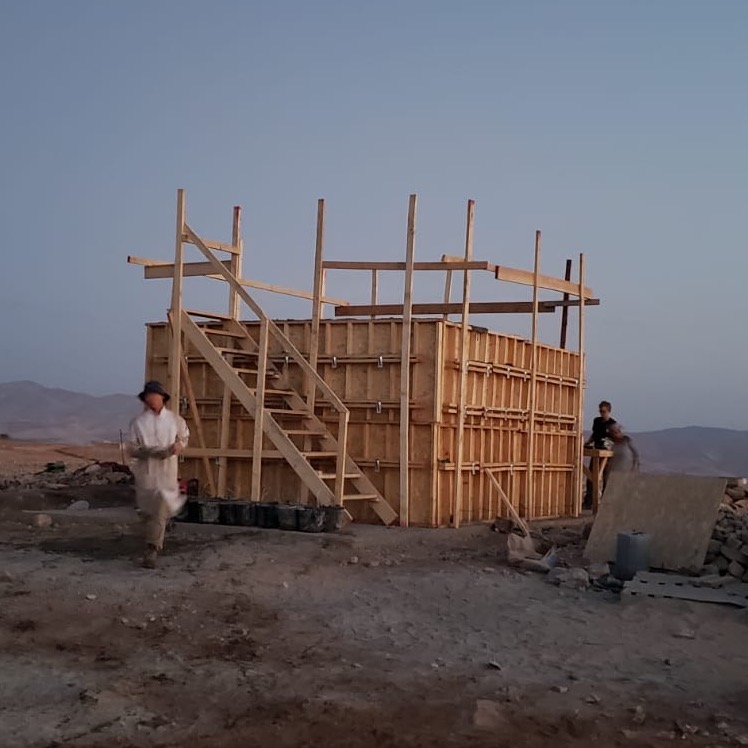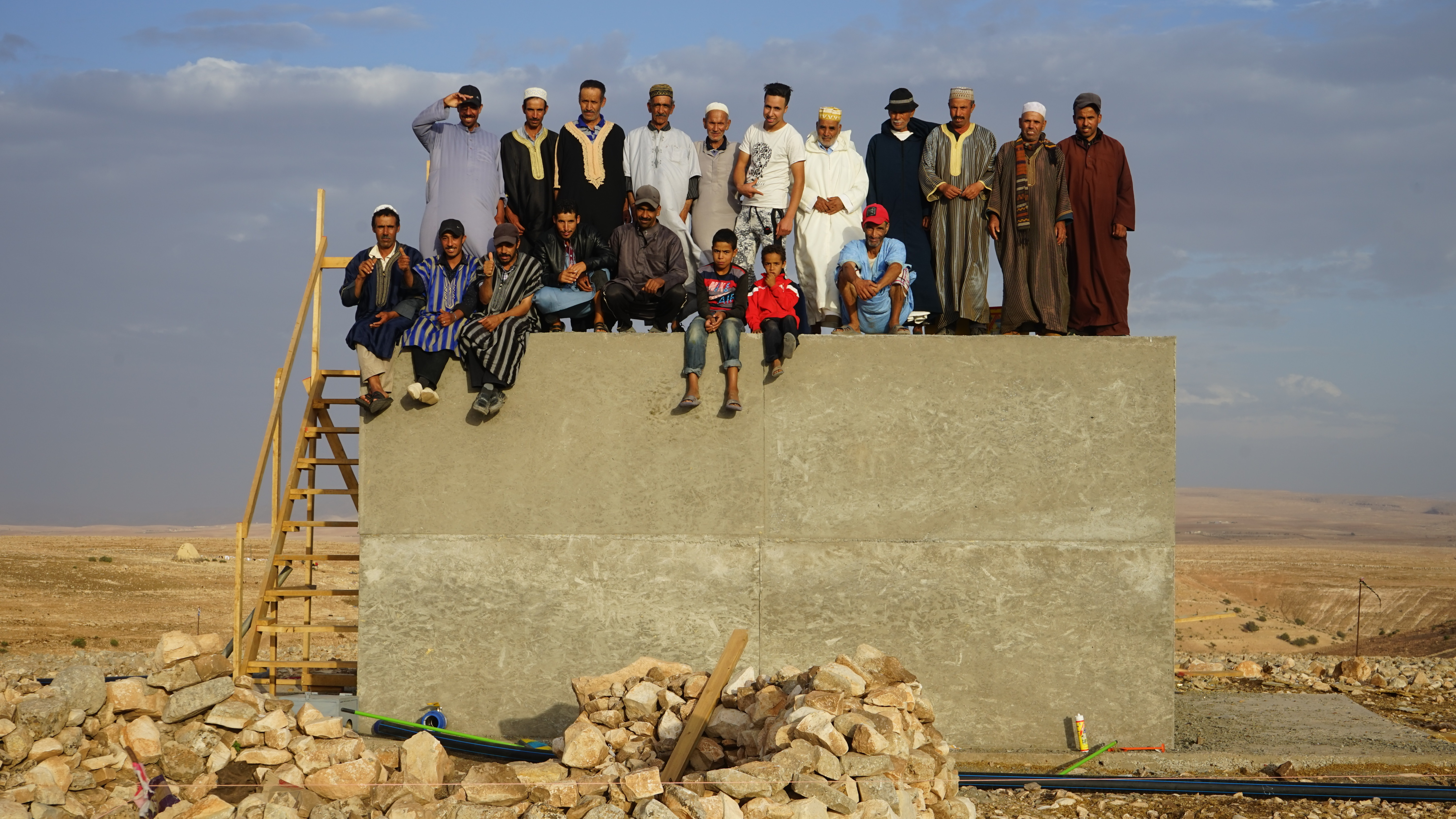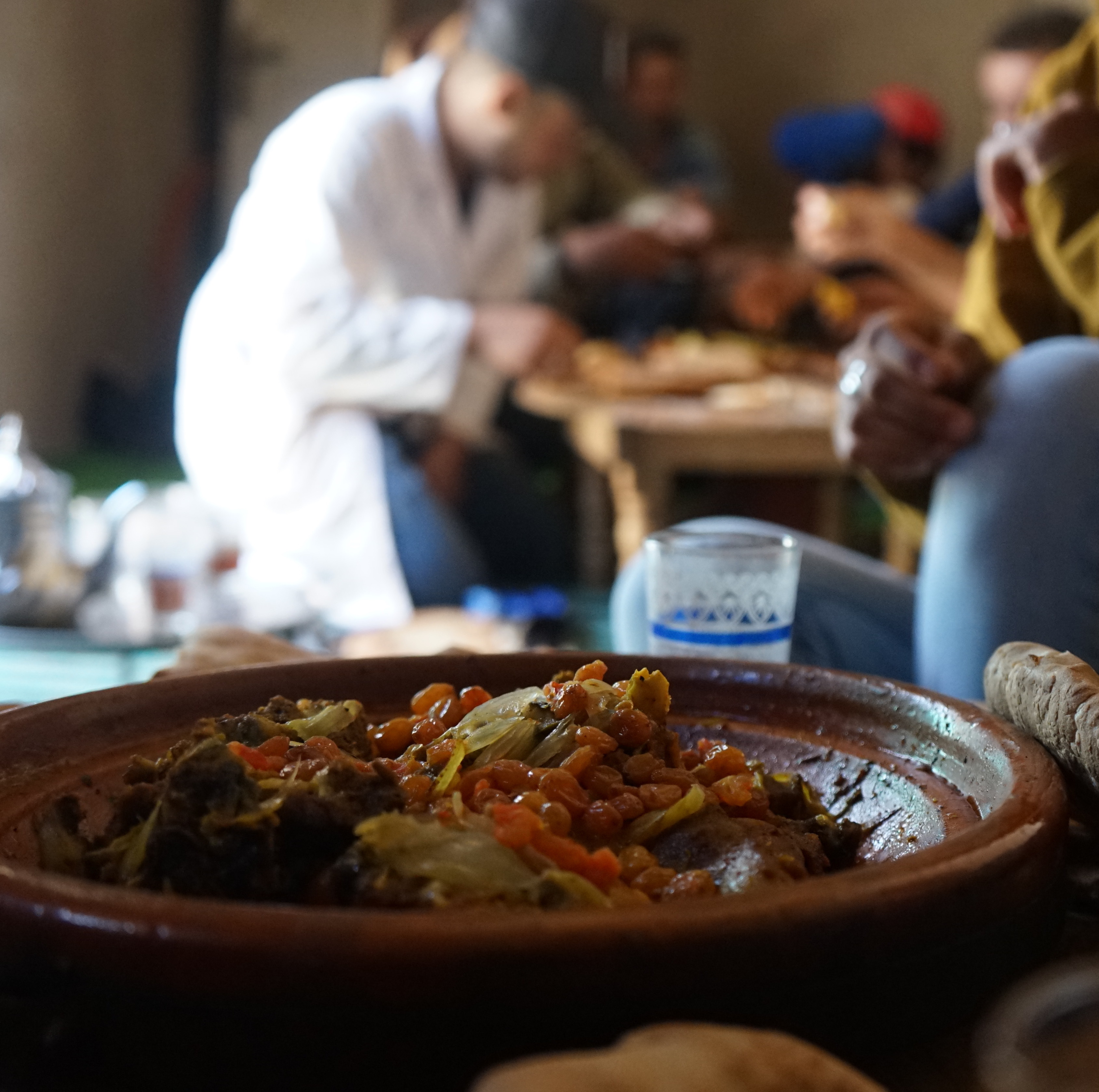The Morocco Program of Columbia University Engineers Without Borders (CU-EWB Morocco) is currently engaged in a Water Distribution Project to address the needs of the villages of Izgouaren and Ilguiloda in Ait Bayoud, Morocco. Ait Bayoud is a rural agrarian community in the Essaouira province of Morocco and is made up of twelve dwars, or villages. Two of these dwars, Ilguiloda and Izgouaren, are among the most isolated communities. They both lack a drinkable, accessible water source, a challenge for health and economic opportunity. CU-EWB Morocco has worked to directly address the lack of access to drinkable water and its consequences in the two communities by constructing a solar-powered water distribution system for the two villages. Through this project, we hope to alleviate water insecurity, improve health outcomes, and give community members more time for other responsibilities or opportunities instead of walking for hours to collect water each day.
Tapstands
The tapstands were the part of the project that I spearheaded the design of. The design and consrtuction of the tapstands was highly human-centered while also having many technical considerations. We worked alongside the community to pick ideal locations for tapstands, and chose a simple yet effective tapstand design. Additionally, noting that the communinities are largely made up of subsistence farmers, we elected to have two tapstands, designating one as for domestic use, and the other for agricultural use.
Overall System Design
In addition to leading the design and construction of the tapstands, I also collaborated with various other team members to create a cohesive system. I aided in the design of the pipeline, and weighed in heavily in discussions about building social structures capable of maintaining our work.
Now, as program manager, I am largely responsible for coordinating our designs in order to ensure the quality of the teams work is up to standard, puts the needs of the community before anything else, and is well designed.
This community development work is very much still in process, as we continue to alter our designs based on community feedback, and promote equitable water access through secure, thoughtful engineering.

